
The Rise of Skywalker - highly advertised by Disney as the end of the line for the saga of Anakin, Luke and Rey - is not a true ending to the story; it's J.J. Abrams and Kathleen Kennedy's version of one way Star Wars could have gone, knowingly constructed in defiance of the story suggestions George Lucas left behind on his way out the door. Watchmen is not the logical next step for Alan Moore's vision; it's Damon Lindelof's best stab at updating the IP for today.
Welcome to the age of officially sanctioned fanfic.
Earlier this month, the new Ghostbusters trailer dropped and the internet had some thoughts, mostly that it was lame and looked like a Stranger Things rip-off. Never mind that Stranger Things is itself a fanfic remix of all nerdy 80s pop culture, including Ghostbusters. No, since the new Ghostbusters features one of the Stranger Things kids, Finn Wolfhard, and the trailer is mostly scenes of a couple of Midwestern kids discovering old Ghostbusters gear in their dead grandpa's farm the fix is apparently in. You can't take the kids out of the homage machine that is Stranger Things, put them into an 80s remake/requel/sequel, and call it good. The formula at play is too transparent, especially since this is coming from a franchise that recently tried to glom another trend - female-led projects - as justification for a rather troubled reboot.
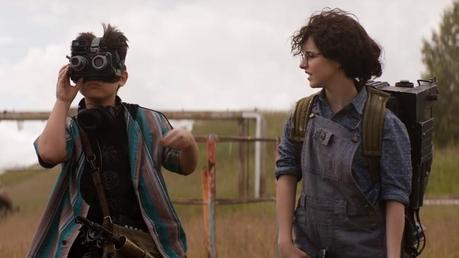
Well, shit, says anyone who worked on the new Ghostbusters. What the heck do people want? The trailer is a masterwork of misdirection and nostalgic showmanship, starting off by pretending this just might be a domestic drama about some big-city kids struggling to adjust to living in the sticks. Sure, that doesn't explain why exactly Paul Rudd is around as an overenthusiastic scientist responding to some weird nearby seismic activity, but, hey, you go with it. Then the trailer shifts toward acknowledging that these kids are actually the grandchildren of one of the original Ghostbusters, not that they know or understand what that even means.
That's ok. Those of us who already know the franchise are way ahead of them. Obviously, the ghost they end up hunting through the city is Slimer, and of course we recognize Bill Murray's voice at the end, the trailer repurposing one of his speeches from the old films. To anyone unfamiliar with the franchise, though, maybe Finn Wolfhard will be enough to pull you into something new/something old.
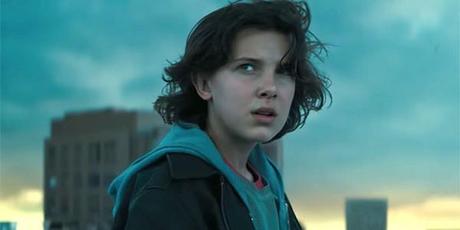
Yeah, try telling that to Godzilla: King of the Monsters, Millie Bobby Brown's film debut and giant box office letdown.
That won't stop Hollywood from trying again, though. This is an undustry, after all, which has for ages acted according to a very simple formula: take that thing that seems to be working over there and try to bring it over here. In this case, take a Stranger Things kid and put them in something that feels like it is from the 80s and hope like hell that it works. It and It: Chapter 2 certainly rode that to the bank. Godzilla: King of the Monsters, not so much. Your turn, Ghostbusters.
It's not just Stranger Things and 80s nostalgia, though. We see this all over the place. Look to earlier this year when Sony tried and failed to poach away two Marvel Cinematic Universe actors - Chris Hemsworth and Tessa Thompson - and make them the buddy duo face of a rebooted Men in Black. Result: lowest-grossing film in franchise history, by far.
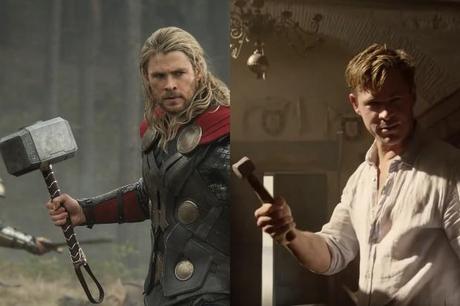
This is just one of the Hollywood formulas that are currently struggling.
Another: passing off glorified fan-fiction as legitimate IP cultivation.
One of the byproducts of Hollywood's slavish adherence to only funding projects based on old properties everyone at least kind of knows is that fanfic has gone mainstream. Of course, we don't think of it that way nor is it usually put in those terms. When J.J. Abrams creates a new Star Wars movie, it's, well, a new Star Wars Movie. Except it's not. It's J.J. Abrams Star Wars fanfiction. The same goes for Danny McBride and David Gordon Green's Halloween from last year, Damon Lindelof's Watchmen from this year, and the last couple of seasons of Game of Thrones aka the ones where they had to guess how the story's supposed to end since they finally lapped George R.R. Martin's novels. All of them boil down to being a very famous fan's idea of what could have happened next in the story.
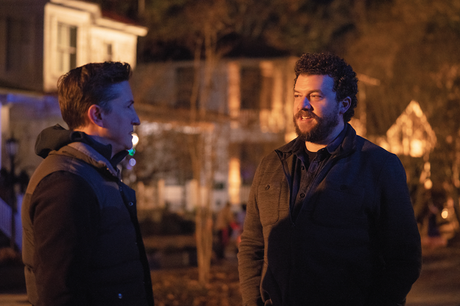
But we don't call it fanfic. That's partly because the mere word "fanfic" still carries a stigma, a presumption of something being inherently lesser, the work of a passionate person with a hobby, not a professional with a worldwide stage. If "fanfic" is the work of an amateur not formally affiliated with the franchise they love so much, then by definition an Abrams Star Wars film or Lindelof Watchmen episode cannot be considered fanfic. No, these are canonical continuations of beloved franchises, the end result of literally millions in investments from corporate overlords and countless hours of manpower from both salaried and hourly employees.
Yet, on a recent episode of podcast Lindelof referred to his work on Watchmen as fanfiction. In fact, he argued most of his peers are professional fanfic writers now, offering their best takes on beloved franchises since that's the only thing Hollywood will put any money into. In almost of these cases, the original creators - George Lucas, Alan Moore, John Carpenter (who did at least consult and provide music to the new Halloween), Debra Hill - are dead, retired, have moved on, or...to be honest, I don't really know Alan Moore is up to these days, but he's certainly not in the business of authorizing anyone to turn Watchmen into an HBO series. He doesn't have the legal right to forbid such things, but as a purveyor of the dark arts he can place a curse on anyone who goes there. So, yes, Damon Lindelof has literally been cursed by Alan Moore, but Watchmen the show still exists.
Lindelof's approach, as he explained on the pod, is to make the most of the opportunity. If he gets to be the one to make glorified Watchmen fanfic, he owes it to himself to rise to the material and use it to challenge audiences the same way the graphic novel did in the 80s. Considering his past involvement in Prometheus and the first couple of J.J. Abrams Star Trek movies, this is far from his first rodeo, and he can't help but inject his own storytelling habits into each piece of IP he touches. That's why certain episodes of Watchmen feel like they could very well have come from his prior HBO show, The Leftovers, itself a reinterpretation and expansion of a novel. It's the only know he knows how to do this, and if you're not trying something new with IP then what's the point of doing anything with it, or so he seems to believe.
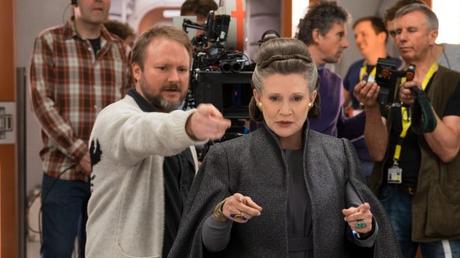
Rian Johnson would certainly agree with that. "I think approaching any creative process with that or anything with that second thing you said [making fandoms happy] would be a mistake that would lead to probably the exact opposite result," Johnson said in an interview on the Swings & Mrs. podcast. "Even my experience as a fan, you know if I'm coming into something, even if it's something that I think I want, if I see exactly what I think I want on the screen, it's like 'oh, okay,' it might make me smile and make me feel neutral about the thing and I won't really think about it afterwards, but that's not really going to satisfy me...I want to be shocked, I want to be surprised, I want to be thrown off-guard, I want to have things recontextualized, I want to be challenged as a fan when I sit down in the theater."
That's not the J.J. Abrams way, though. His production company, Bad Robot, recently signed a megadeal with WarnerMedia after being courted by just about every studio in town. Heck, Abrams' services were so coveted WB changed freakin' CEOs at Bad Robot's unofficial request. (The sexual misconduct charge against ousted WB CEO Kevin Tsujihara was too far beyond the pale for Abrams; if he was to even consider signing with WarnerMedia, Tsujihara had to go.)
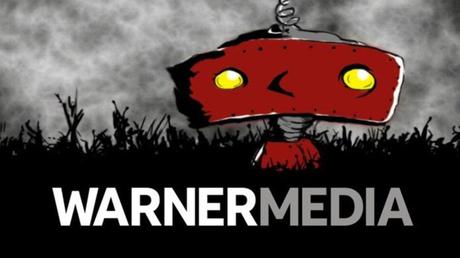
That's true power, and it's the kind of power Abrams possesses entirely because through both his film and producing projects he has proven himself the master at playing with other people's toys and making everyone - both the initiated and uninitiated - feel invited to the party. ( Star Trek purists aside, his Star Trek films set franchise records at the box office.) Unlike Johnson or Lindelof, Abrams doesn't approach IP as something to be weaponized against an audience already overdosed on nostalgia; instead, he offers clever variations on the familiar.
Abrams' fanfic is the type you read and then think, "Wow, this guy has clearly seen A New Hope a lot. Like, a lot a lot." Johnson, however, produces fanfic that leaves you thinking, "He clearly knows his Star Wars, but he's also mixing in a lot of Battlestar Galactica in there."
Neither of them had anything to do with the creation of the first 6 Star Wars films. They are fans, pure and simple, with differing approaches to storytelling. It has left us with a schizophrenic new trilogy. They wrote dueling fan fiction novels parading as films, and when the internet didn't know how to cope with the narrative whiplash Abrams and LucasFilms freaked and reportedly veered Rise of Skywalker right back toward Force Awakens-style fan service. Critics are unimpressed. I'm seeing it tonight. Lowered expectations?
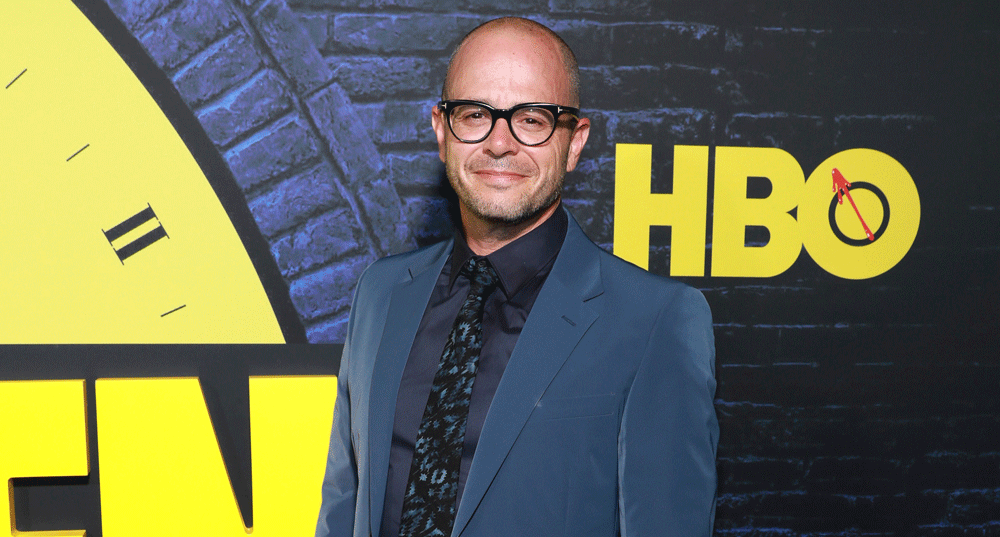
That's why I'd be ok if HBO walked away from Watchmen. Lindelof has made it clear he is done with the show as an everyday showrunner/head writer; if there is to be a second season, his involvement will either be tangential or entirely ceremonial. He may categorize the show as his unsanctioned fanfic, a work literally cursed by Alan Moore, but if you've seen The Leftovers you know that Lindelof's Watchmen deserves to be thought of as, well, Lindelof's Watchmen. Structurally, thematically, visually - it is of a piece with his prior work, so much so that it's hard to imagine this version of Watchmen going forward without him.
But that's the thing about Hollywood's fanfic era - there's always another fan willing to take a stab at it. It was just 3 years ago that Paul Feig's feminist fanfic Ghostbusters failed to turn a profit at the box office. Sony is back at it again, except this time Ivan Reitman (director of the first two films) and Dan Aykroyd (star and co-writer) are even more involved (they were around for the '16 film but it wasn't really their project) and Ivan's son Jason is directing and co-writing. That's right, they made sure to include some of the original authors (original co-screenwriter Harold Ramis, sadly, is no longer with us) and even a second-generation author. That should solve things, right?
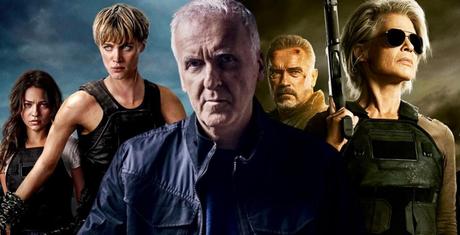
Oh, yeah - bringing back the original author doesn't always works out either.

